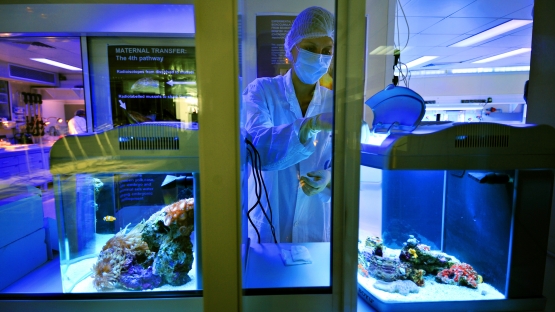Swimmers, surfers and sunbathers might not notice, but our oceans are in deep trouble. Levels of acidity are increasing, creating a hostile environment in which calciferous plankton, crustaceans, molluscs and coral reefs are stressed and the resilience of entire ecosystems is threatened.
This process, which is taking place at a more rapid pace than has been observed in the past, is a consequence of the oceans taking up more than a quarter of the carbon dioxide produced from the burning of fossil fuels.
More and more experts and policy makers are becoming alarmed about this process - known as ocean acidification - and there is an increasing awareness of the need for science that provides reliable information about what is happening and why - knowledge that will form the basis for developing responses. The IAEA is contributing to such efforts through work conducted in its ocean-side laboratories in Monaco (the Marine Environment Laboratories MEL) and its Terrestrial Environment Laboratories in Vienna.
In September 2013, on the sidelines of the General Conference, the annual meeting of the IAEA's 159 Member States, scientists and experts will highlight ocean acidification and the role of nuclear applications in support of a sustainable marine environment at the Conference's regular two-day Scientific Forum, titled The Blue Planet: Nuclear Applications for a Sustainable Marine Environment. It will bring together experts, scientists and business representatives from around the world all of whom are working in their own ways to protect our oceans.
For more information, see the programme for the 2013 Scientific Forum.



